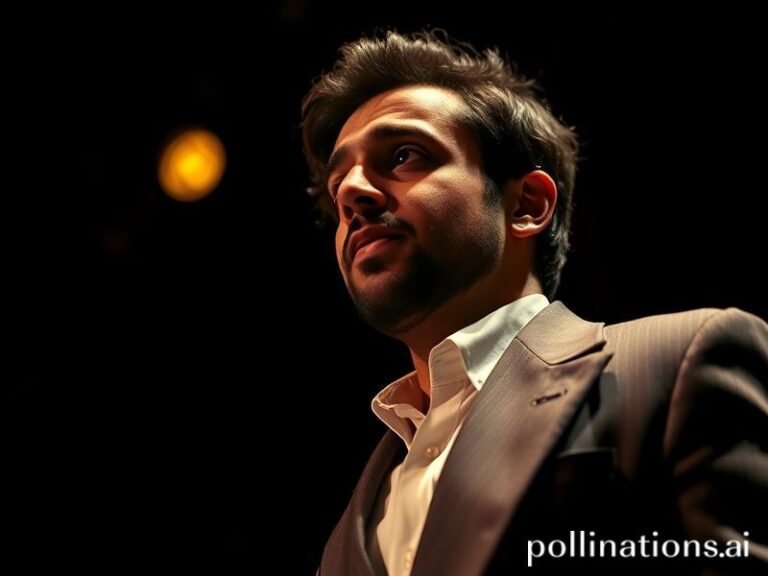Jatinder Singh: The Everyman Routing Global Panic Through Three Passports and a PowerPoint
Jatinder Singh, a name that sounds like it was auto-generated by a visa-processing algorithm, has quietly become the Rosetta Stone through which the world deciphers its own absurdity. The 37-year-old Punjab-born, Toronto-schooled, Dubai-resident management consultant is not famous—yet he is precisely the kind of un-famous person whose itinerary now carries more geopolitical weight than most mid-sized parliaments. He is the human USB stick on which the twenty-first century stores its contradictions.
Let’s begin with his passport, that slim blue booklet that now determines one’s life expectancy more accurately than actuarial tables. Jatinder holds three of them: Canadian by naturalisation, Indian by birthright, and—thanks to a convenient investment scheme—Dominica by credit card. Each document is a different-coloured key to a different-coloured door, a fact he discovered when he tried to visit his own parents in Chandigarh last year and was routed through Warsaw because Qatar Airways still believes the subcontinent is a monsoon-addled fever dream. One nation’s citizen is another nation’s layover.
Professionally, Singh advises Fortune 500 companies on “digital decarbonisation,” a phrase that sounds like a yoga pose for iPads. His job is to tell American conglomerates how to emit less carbon by emitting more PowerPoints. Last quarter he billed 212 hours to a single slide titled “Synergistic Leverage of Net-Zero Paradigms,” which was translated into 14 languages and immediately ignored in 13 of them. The slide nevertheless earned him enough Aeroplan miles to circle the planet 2.3 times, a carbon footprint he offsets by planting virtual baobabs on an app whose servers are cooled by Icelandic glacial meltwater. The glacier, for its part, has begun sending invoices.
Jatinder’s leisure time is spent arbitraging human misery on fantasy-sports platforms. Every Sunday at 4 a.m. Dubai time—when Detroit is asleep and Delhi is caffeinated—he captains a virtual cricket team composed of real Bangladeshi tailenders who earn less per month than he spends on oat-milk lattes. Their statistical misfortunes are monetised into his micro-victories. He calls it “passive income”; the Bangladeshis call it Tuesday.
Meanwhile, global supply chains orbit around his whims like anxious moons. When Jatinder clicks “buy now” on a limited-edition ergonomic keyboard, factories in Shenzhen recalibrate, cargo ships in the Suez Canal recalculate, and an Uber driver in Islington receives an alert to deliver it—only for Jatinder to be in Zurich that week, leaving the package to spend six months in bureaucratic purgatory next to someone else’s lost soul. The World Economic Forum has quietly modelled what happens if Jatinder ever decides to go analogue: GDP projections crater, lithium mines fall silent, and 12% of global advertising revenue is revealed to be selling things to other algorithms.
Yet the man himself remains largely unaware of his planetary footprint. Ask him what keeps him up at night and he’ll say “latency issues during Zoom calls,” not the Somali cybersecurity firm currently spoofing his IP address to mine Dogecoin. He believes himself to be a free agent, an irony not lost on the three governments that currently track his biometric data in exchange for lounge access.
In the end, Jatinder Singh is the international system’s perfect synecdoche: a living Venn diagram where supply-chain anxiety, passport privilege, carbon guilt, and crypto-capitalism overlap like a demented Olympic logo. He is neither hero nor villain, simply the statistically average node through which the modern world routes its panic. And should he ever disappear—misfiled between terminals, perhaps, or accidentally rendered stateless by a software update—the global order would experience the digital equivalent of a phantom limb: everything still functioning, yet inexplicably in pain.
Which is comforting, in a way. If civilisation collapses, historians will know whom to subpoena. If it survives, they’ll probably just give him a loyalty card.







